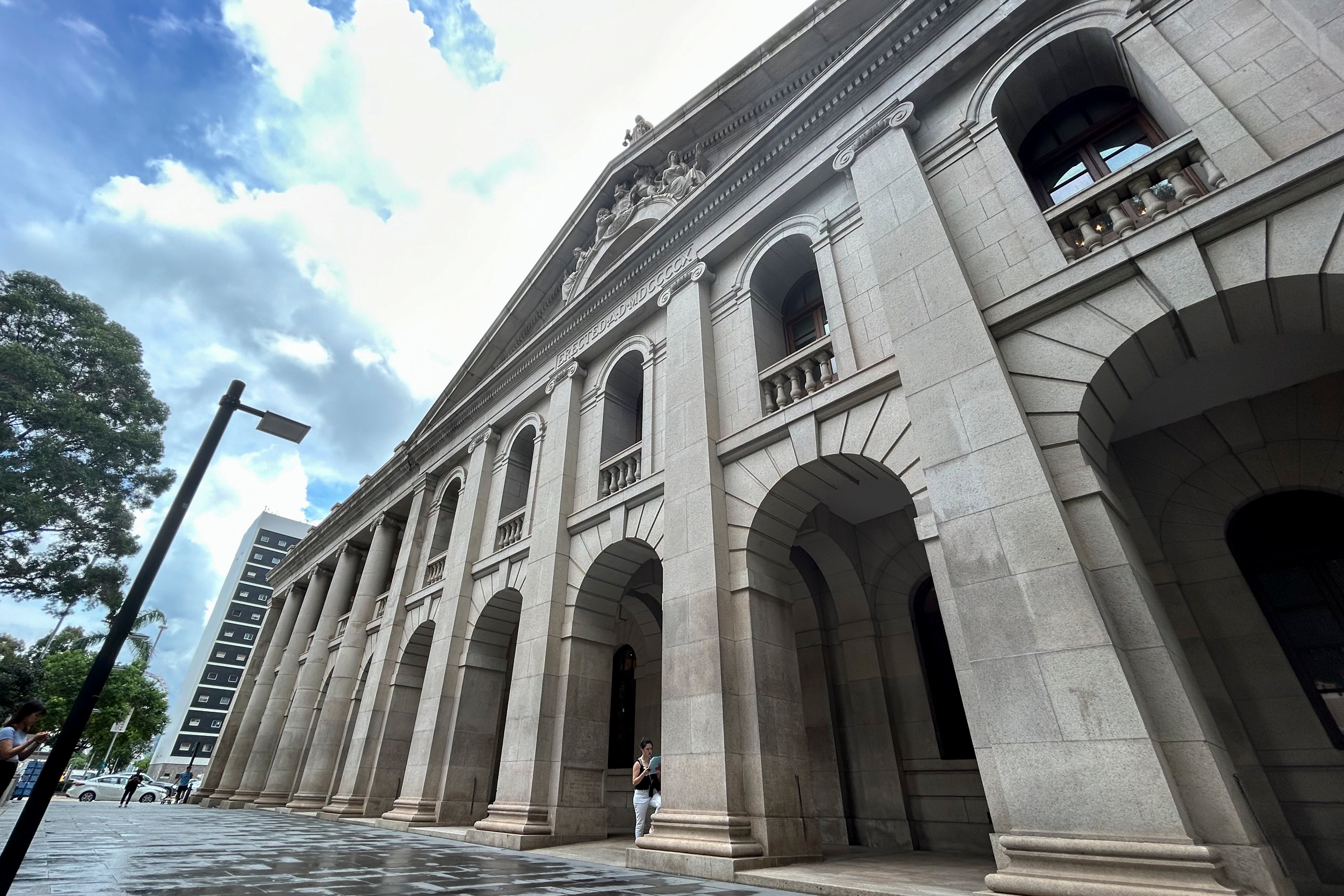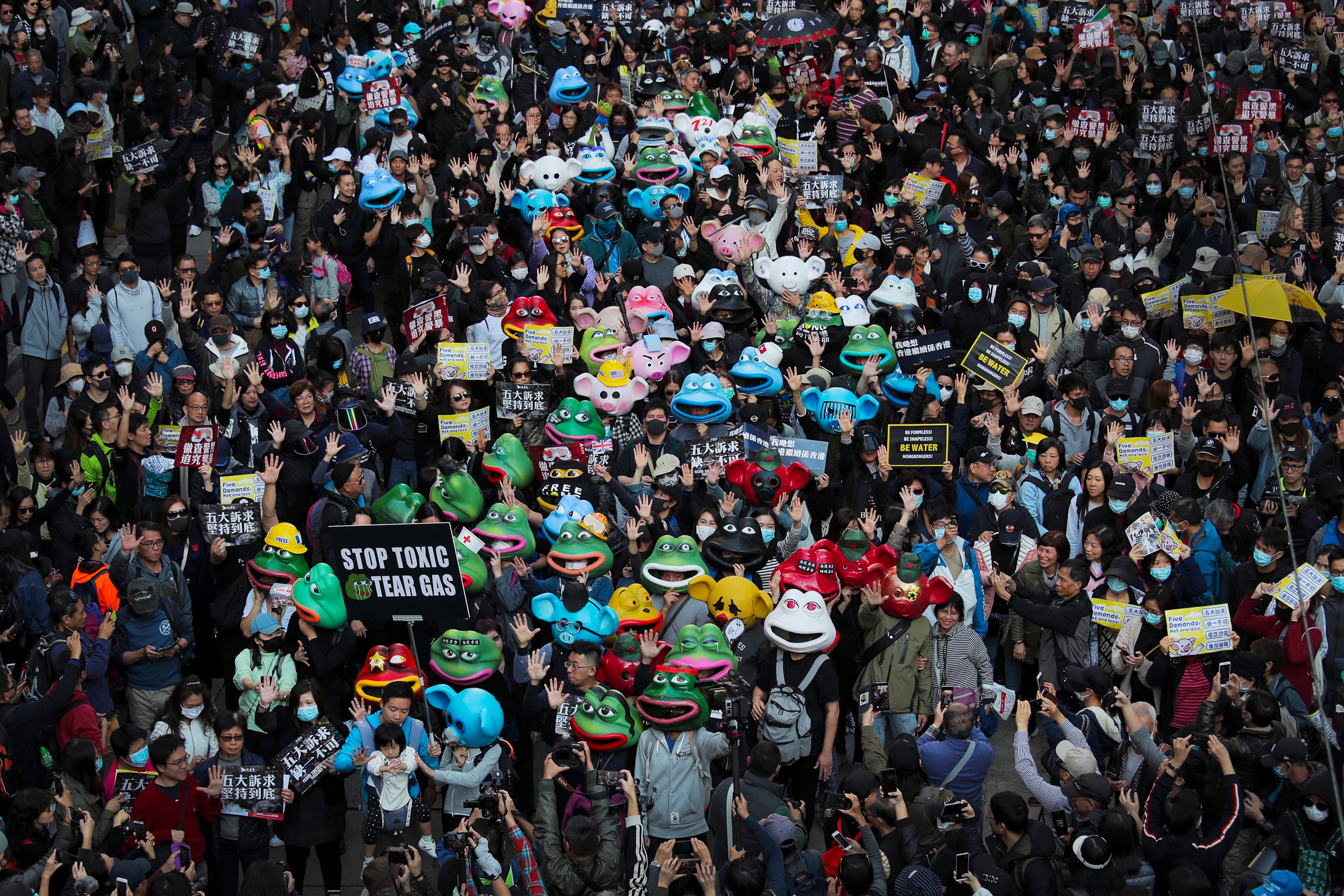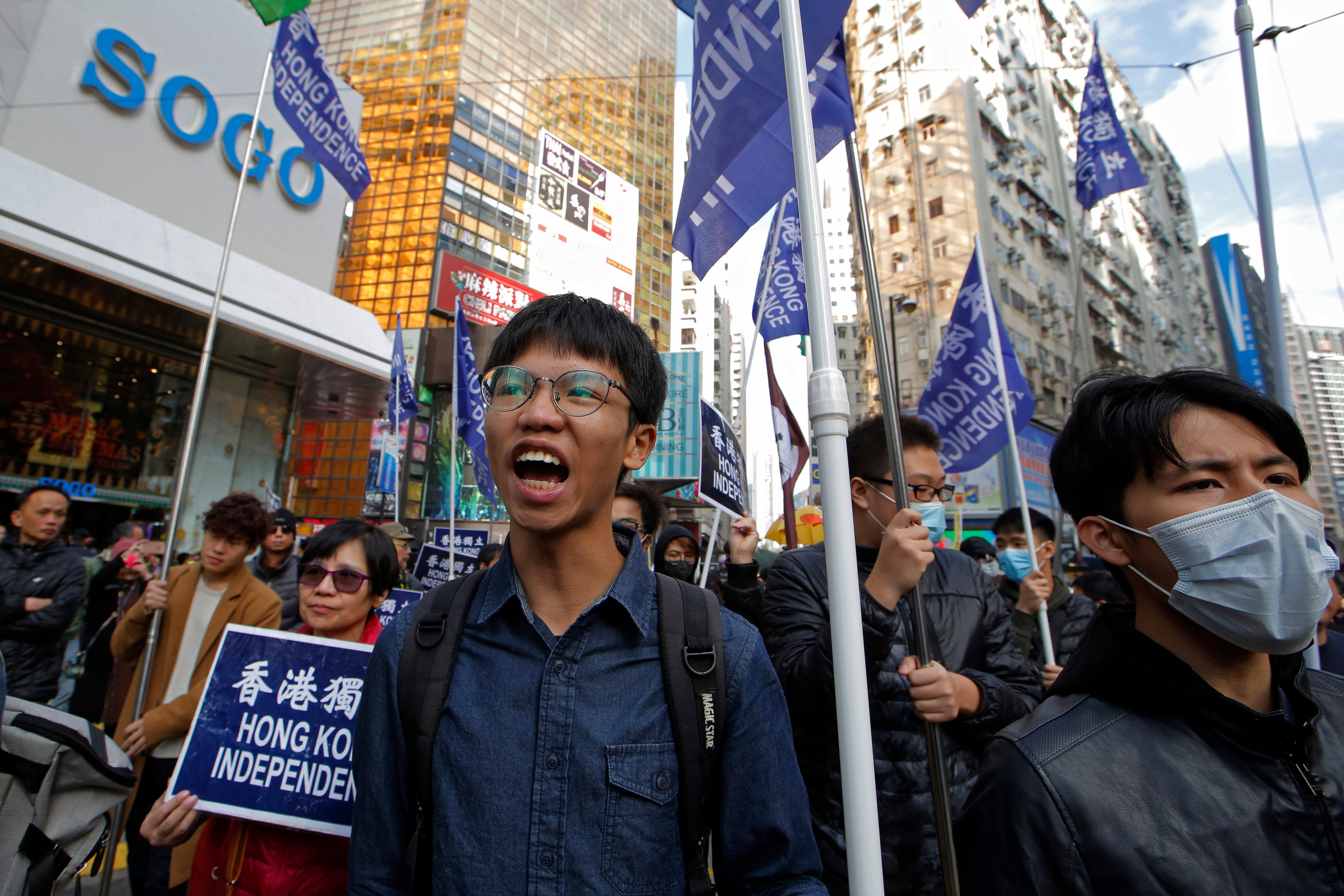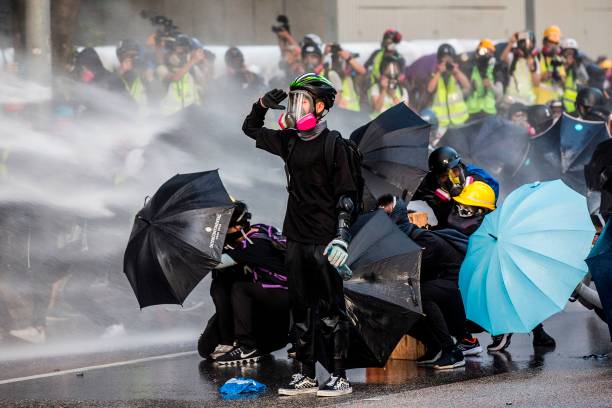British judges paid £40,000 to sit on Hong Kong court despite pro-China crackdown
More than 1,800 political prisoners have been detained in Hong Kong in Beijing’s clampdown on the region since 2019

British judges are taking tens of thousands of pounds to sit on Hong Kong’s top court despite a pro-China crackdown on dissent in the city.
Five British judges are listed as overseas non-permanent judges for Hong Kong’s Court of Final Appeal and can be selected at any time to sit on appeal cases, for up to a month at a time.
They are paid £40,000, with flights, accommodation and travel also expensed, according to a freedom of information request seen by The Independent.
British judges have sat on the court since 1997 on a non-permanent basis as part of an agreement when the city was handed back to China by the UK.
The intention was to help preserve the rule of law, provide expertise to local lawyers and reassure businesses and financial markets.
The judges, who are all retired from their UK roles, are Lord Leonard Hoffmann, Lord Jonathan Sumption, Lord David Neuberger, Lord Nick Phillips and Lord Lawrence Collins.

More than 1,800 political prisoners have been detained in Hong Kong in a crackdown since mass pro-democracy protests in 2019 – particularly in the wake of the China-imposed national security law passed by the city’s pro-Beijing legislature in 2020.
On Thursday, 14 pro-democracy activists were found guilty of charges of subversion under that law, which Amnesty International described as a “near-total purge” of Hong Kong’s political opposition.
While the British judges cannot rule on national security law cases, Lord Hoffmann and Lord Sumption have overseen cases involving convictions of activists critical of Beijing.
One case involving Lord Hoffmann was the conviction of journalist Choy Kin Yue, who was accused of unlawful protest for filming three other people following a police officer. A lower court had thrown out the case on the grounds Mr Choy could have been documenting the incident.
Lord Hoffmann was one of five judges to impose the original sentence of three months in prison after an appeal in 2022. The basis for that judgment was that it was unnecessary to prove Mr Choy’s intent when taking part in the incident, which had been deemed an unlawful protest.

The judgment, signed by all five judges, read: “It is not necessary in the present case for the prosecution to prove an intent on the part of the respondent [Mr Choy] to act in furtherance of the prohibited conduct of the other defendants.
“In other words, there is no need to show that by his filming of the police officer the respondent [Mr Choy] intended to facilitate or encourage the other defendants in committing their prohibited conduct.”
The Committee to Protect Journalists said Mr Choy’s imprisonment showed the “relentless pursuit” of criminal charges brought against journalists in Hong Kong and was an example of the crackdown on independent media.
Lord Hoffman, who has served on the court since 1998, told The Independent the sentence was upheld within the framework of a public order law passed in 1967.
“The legislation construed by the Court of Final Appeal in the case to which you refer (the Public Order Ordinance Cap 245) was enacted by the colonial government in 1967. I have no other comments,” he said.

Lord Sumption was involved in a case surrounding the definition of rioting in Hong Kong. The Hong Kong government had sought clarification on the law during the protests after hundreds of people gathered at a demonstration in 2019.
The judgment read: “People who encourage or promote criminal assembly on social media would be guilty of incitement.
“Persons so convicted as accessories or for inchoate crimes are punishable to a like extent as principal offenders.”
The Committee for Freedom in Hong Kong has claimed the ruling set a precedent through which “many” nonviolent protesters have since been sentenced to prison.
Lord Sumption told The Independent: “The Court of Final Appeal rejected the excessively broad submissions of the prosecutors about the test for participation in a riot. The result was a statement of the law similar to that which would apply in England.”
The Independent contacted Lord Neuberger, Lord Phillips and Lord Collins for comment. The three judges have not ruled on any appeals since Beijing’s crackdown intensified in 2020.
In 2022, UK Supreme Court president Lord Robert Reed and Lord Patrick Hodge resigned from the court on the basis that continuing to serve on it would endorse Hong Kong’s pro-Beijing administration.
Critics say that British judges should not be sitting on the appeal court at all. International law expert and barrister Sir Geoffrey Nice told The Independent: “I see absolutely no reason the judges should be there ... The Hong Kong game has been lost and it is being drawn back to China.”